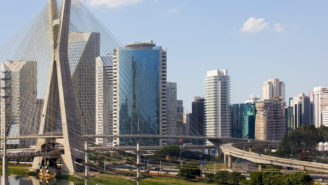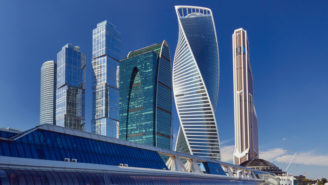"Cities and Climate": issues faced by major cities worldwide
 © kurosuke - stock.adobe.com
© kurosuke - stock.adobe.com Germany is exploring how to make cities sustainable and is seeking exchange with drivers of innovation around the world.
Where are the cities of the future to be found? “All over the world” might be the answer, as all kinds of different cities will play a key part in global development. “Cities are where the climate battle will largely be won or lost”, believes United Nations Secretary-General António Guterres.
Urban growth
Cities are already home to half the world’s population, a proportion that the United Nations predicts will rise to two thirds by the year 2050. Cities are responsible for over two thirds of global energy consumption, and account for more than 70 percent of carbon emissions. At the same time, as centres of education, research and entrepreneurship, cities are also where innovations crystallise.

"I believe that the annual focus topic is highly relevant to global politics and of extreme scientific importance. It will allow the involvement of virtually all disciplines in higher education and will undoubtedly foster both interdisciplinary and international collaboration in an area that is of immediate importance for the majority of the world’s population."Prof Dr Peter-André Alt, President of the German Rectors’ Conference (HRK)
At their respective locations in New York, São Paulo, Moscow, New Delhi and Tokyo, the German Centres for Research and Innovation (DWIH) provide an unique broad-based network of institutions and allow experts from Germany to engage in an exchange with their colleagues in the DWIH host countries. The five global cities that are home to the DWIH all have their own particular relevance to the DWIH’s 2020 focus topic of “Cities and Climate”.
The DWIH Board of Trustees selected this annual focus topic with a view to taking full advantage of the strengths of this global network via a tailormade programme of activities. This importance will be reflected by the DWIH in their events and in the information and dialogues that they make continuously available. After all, it is quite clear not only in all DWIH host countries but also in Germany that urban development is one of the keys to a sustainable future.





